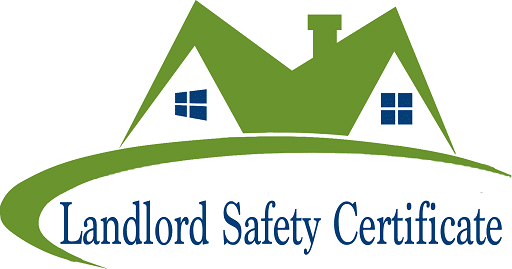
Landlords in London face strict legal obligations when it comes to tenant safety, property standards, and compliance with local regulations. Yet, many landlords underestimate the financial and reputational risks of ignoring these responsibilities. From hefty fines to criminal charges, the consequences of neglecting property safety requirements are severe. By reviewing landlord non-compliance examples and real safety penalty stories, landlords can understand what’s truly at stake—and why compliance should never be ignored.
London is one of the most regulated rental markets in the UK. Landlords must meet requirements around gas safety, electrical safety, energy efficiency, and tenant well-being. Annual safety certificates, inspections, and regular maintenance are not just best practices—they’re legal obligations.
When landlords fail to comply, enforcement authorities can impose penalties that go far beyond financial fines. Landlord non-compliance examples often show how quickly reputations can be damaged, rental licenses revoked, and properties declared unfit for tenants. Furthermore, safety penalty stories from recent years highlight how negligence puts lives at risk.
One of the most serious compliance areas is gas safety. In London, landlords must obtain a Gas Safety Certificate every 12 months. Failure to do so can lead to prosecution and imprisonment.
A widely reported case involved a landlord in East London who ignored repeated requests to carry out gas safety inspections. Tenants were left with faulty gas appliances that leaked carbon monoxide, creating a life-threatening risk. Courts imposed a fine of more than £20,000 plus costs.
This is a clear example of how landlord non-compliance examples are not limited to paperwork—they can directly endanger tenants’ lives. Such safety penalty stories remind landlords that gas safety is a legal requirement, not an option.
Electrical safety is another area where landlords often cut corners. In London, an Electrical Installation Condition Report (EICR) must be carried out every five years. This ensures that wiring, sockets, and appliances remain safe for tenants.
A South London landlord was fined nearly £15,000 for renting out a flat with exposed wiring, unsafe sockets, and no record of an EICR. The council intervened after tenants complained of repeated shocks from electrical outlets.
This landlord became part of the growing list of landlord non-compliance examples, demonstrating that ignoring electrical inspections can lead to both legal and financial ruin. Such safety penalty stories emphasize that councils take these breaches seriously, often making them public to warn others.
Fire safety is crucial in London, where many properties are converted into houses of multiple occupation (HMOs). In one case, a landlord in North London was fined over £50,000 after inspectors found missing fire doors, faulty smoke alarms, and blocked escape routes.
The judge in the case emphasized that fire risks in rental properties can cost lives. This shows how safety penalty stories go beyond financial punishment—they highlight the devastating consequences of neglect.
These landlord non-compliance examples reinforce why fire safety checks, alarms, and clear evacuation routes must never be overlooked.
Energy efficiency regulations also apply in London. Properties must have an Energy Performance Certificate (EPC) rated at least E before being legally rented out. However, some landlords attempt to bypass this rule.
In a recent case, a Central London landlord rented out a property with a rating of F and failed to improve insulation and heating systems. The fine reached £10,000, and the landlord was banned from renting out the property until improvements were made.
This is one of the most overlooked landlord non-compliance examples, yet safety penalty stories like this prove that energy standards are enforced strictly. Improving energy efficiency not only avoids fines but also reduces tenant complaints and improves property value.

London has strict rules for landlords renting out HMOs. A property with multiple unrelated tenants often requires a specific license. In one case, a West London landlord rented out a house to 10 people without a license, failed to maintain common areas, and provided no proper fire safety systems.
The fine exceeded £40,000, and the council also pursued a rent repayment order, forcing the landlord to pay back 12 months’ rent to tenants.
This is one of the most financially devastating landlord non-compliance examples. Safety penalty stories like this show how licensing breaches can result in both immediate fines and long-term losses.
To understand the real cost, consider these average penalties in London:
• Gas safety breaches – Up to £20,000 and potential imprisonment
• Electrical safety failures – Between £10,000 and £30,000
• Fire safety violations – Up to £50,000+
• Energy efficiency breaches – Up to £10,000 and rental bans
• HMO licensing failures – £40,000–£80,000 plus rent repayment
Landlord non-compliance examples clearly show that fines can exceed the cost of compliance by ten times or more. Safety penalty stories confirm that prevention is always cheaper than paying for negligence.
Beyond financial penalties, reputation damage can be permanent. Councils often publish landlord non-compliance examples online, naming and shaming offenders. Tenants also share safety penalty stories on social media, which discourages future tenants and damages trust.
Proactive compliance, on the other hand, strengthens your image as a professional and responsible landlord. Investing in safety checks, certificates, and transparent communication not only avoids penalties but also increases tenant satisfaction and loyalty.
To ensure you don’t end up featured in future landlord non-compliance examples, follow these steps:
By learning from safety penalty stories and following compliance rules, landlords can secure long-term success in London’s rental market.
The cost of non-compliance for London landlords is too high to ignore. Landlord non-compliance examples—from gas safety failures to HMO licensing offences—prove that ignoring regulations leads to devastating financial and reputational damage. Safety penalty stories further highlight that negligence puts tenants at risk and damages trust.
For landlords, the lesson is clear: invest in compliance today to avoid becoming tomorrow’s headline. In London’s competitive rental market, professionalism and safety are not just legal obligations—they are the foundation of a successful property business.

